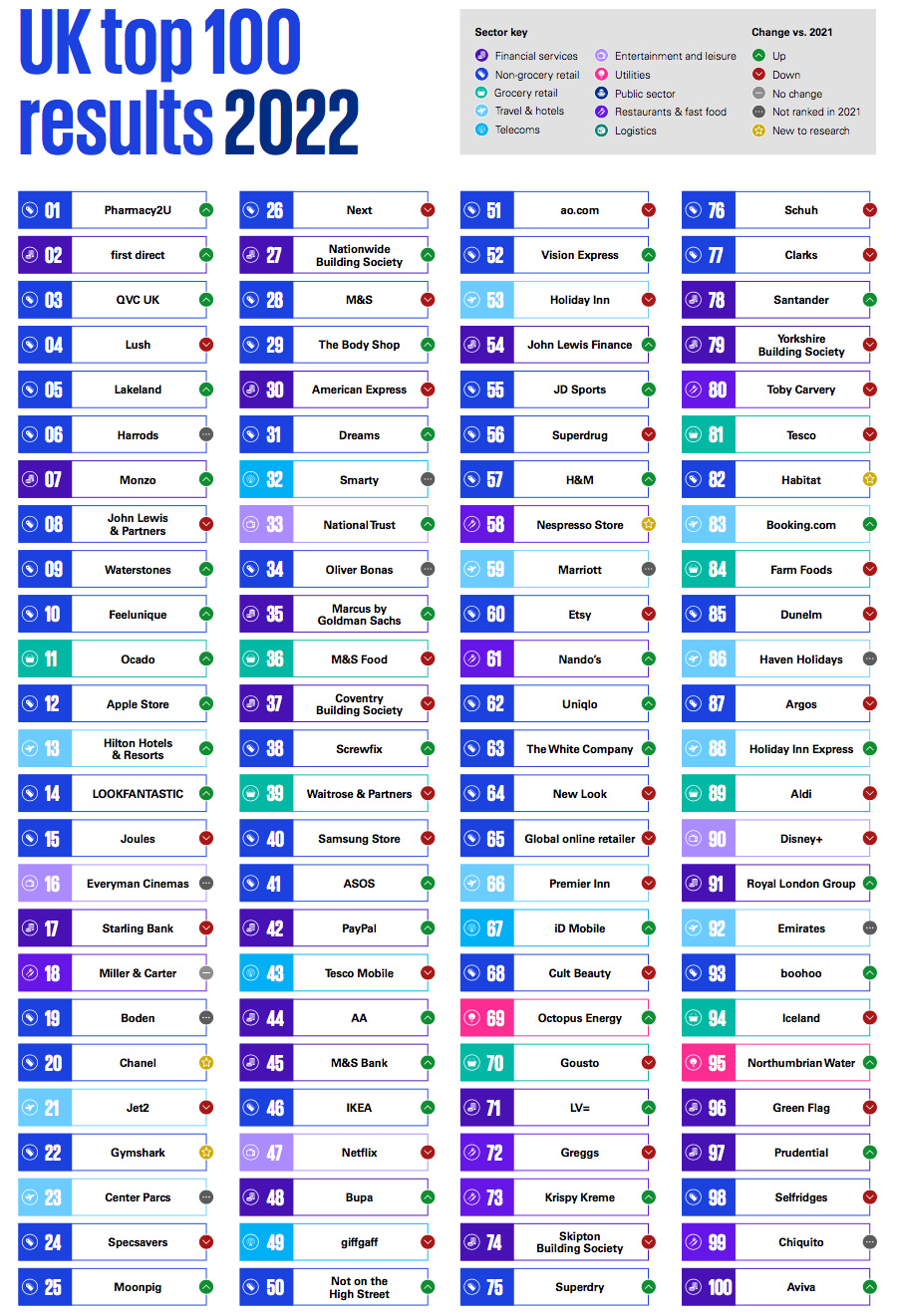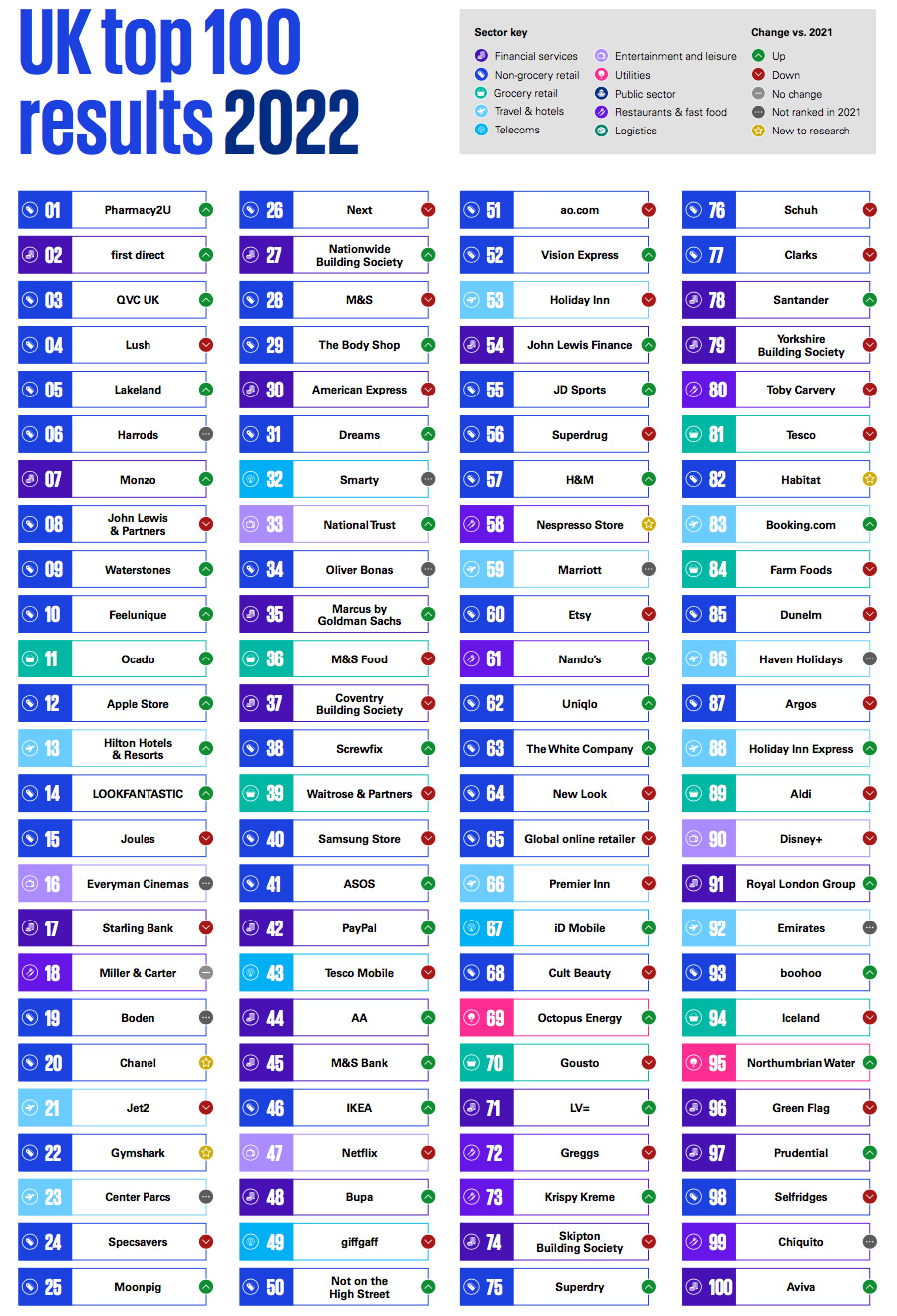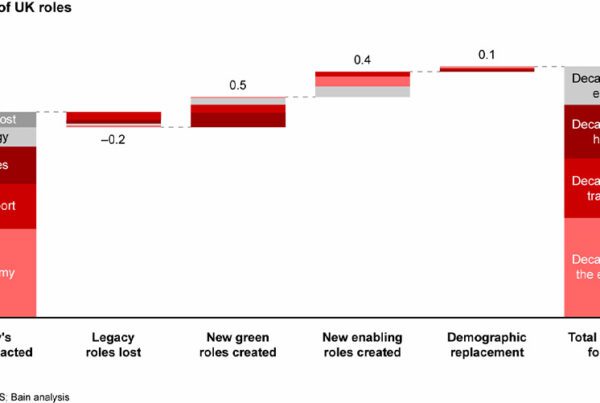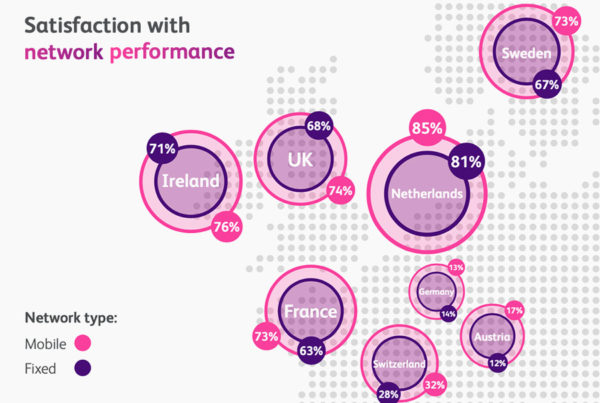Even amid difficult trading conditions, UK businesses are managing to maintain their customer satisfaction levels. A new study suggests that the average customer experience score across a survey of over 300 brands has held steady, over a bumpy last 12 months.
KPMG has evaluated the opinions of more than 10,000 UK consumers, relating to 333 brands. The annual Customer Experience Excellence report outlines how businesses and sectors fared over the last twelve months in the eyes of the public.
In 2021, the average customer experience score across all of the brands rated was 7.36 – and in spite of an increasingly challenging economic backdrop, that actually improved by a small margin this year. Firms maintained a 7.37 average for satisfaction, even as inflation, supply chain disruption and changing consumer demand all put pressure on pricing and operations.

Some firms outperformed others, to maintain top customer satisfaction rates, however. Firms like NHS partner Pharmacy2U dominated a ranking put together by UK consumers in 2022. With new customers rising from 30,000 per month to 30,000 every 48 hours at the height of the pandemic, the company still managed to maintain excellent service. Other companies could likely learn a thing or two from such market leaders, who perform at the highest standard even amid a major crisis.
To celebrate the best practices of top customer satisfaction operators, KPMG profiled five of the top performers.
The top five UK brands for customer satisfaction
Pharmacy2U
The pharmaceutical firm rose five places from its 2021 status, to top KPMG’s index in 2022. Founded in 1999, it aims to offer a new pharmacy experience which saves customers both time and money. Targeted at a clear group of customers who require repeat monthly prescriptions, it uses an omnichannel solution that helps people using Pharmacy2U to choose their preferred method of communicating, via voice, chat, SMS, email and more.
The platform also makes use of both automation and human contact. Its communication service includes intelligent IVR and self-service options that are tightly integrated with smart routing functionality to help patients connect more quickly to the advisor who can best handle their needs. Meanwhile, its distribution methods have seen it invest in giant vending machine-like robots that dispense medicine with extraordinary accuracy and speed, picking one to two orders every nine to 15 seconds. However, for some customers the human touch is essential and a contact centre of “friendly pharmacists” provide human reassurance and insight when it is needed.
First Direct
Another high climber, rising 10 places from 2021, is First Direct. The bank used the impacts of the pandemic as an opportunity to pioneer new services. A renewed focus on the “financial wellness” of its customers, who continue to love the human emotional connection that permeates the First Direct banking experience, the firm introduces extensive updates to its online app and website, introducing transaction categorisation and merchant identification, and providing the building blocks for future enhancements such as in app marketplace and personalised offerings.
This plays into its strategy of “autonomous banking”, where the technology helps remove the “cognitive load” for customers. First Direct has invested in AI based predictive technology to anticipate and respond to customer needs in this way.
QVC UK
Broadcast retailer QVC has held a consistent place in the top five places on KPMG’s list for some time. The firm has had to contend with the rise of e-commerce in recent years – especially amid the pandemic, where ordering goods remotely experienced unprecedented demand – and so it has continued to develop its customer experience offering.
QVC customers often appear within its sale shows via phone, but they can now join virtually via video calls to offer valuable reviews, and provide authentic and relatable content to the audience through peer-to-peer endorsement. This has supplemented experts from around the world, who would normally present live in the Chiswick studios, but during the pandemic instead featured on QVC virtually through video calls. And QVC UK has offered educational services rarely seen in retail within its live beauty shows, implementing two-way cameras for their skincare and make up tutorial segments, allowing the audience to view product demonstration in closer detail.
Lush
Demonstrating the continued importance of purpose to consumers, regular top-five firm Lush maintains a top spot in KPMG’s list. Initially founded in Britain in 1995, Lush has since grown to 951 stores in 49 nations. It produces and sells creams, soaps, shampoos, shower gels, lotions, moisturisers, scrubs, masks, and other cosmetics for the face and hair. It uses what it states are only vegetarian recipes, and 85% are also vegan. LUSH is not afraid to take on social causes, either, having set out campaigns against fox hunting, oil drilling and police abuse in its stores.
The importance of this kind of approach was illustrated by KPMG’s poll, which found that 49% of consumers expressed a willingness to pay more for goods and services that reflect their values. Capitalising this, Lush continues to adapt and improve its ESG credentials. For example, legally, retailers need to provide the customer with instructions and ingredients that they can read when they take their item home – which normally sits on the product packaging. Lush was keen to scale back packaging, however. Using machine learning it fed its computer database with 250,000 photos of Lush products, making its entire range detectable by the Lens feature. Customers simply scan their purchase to access usage and content information.
Lakeland
Breaking into the top five, rising 11 places on its 2021 ranking, Lakeland is a retailer specialising in cooking, baking, cleaning and laundry since 1964. It offers a three-year guarantee and free returns on products, and free delivery is available.
Stores are still central to its offering, however. As it has faced competition from e-commerce, this has seen it develop its bricks-and-mortar offering, to supply a service that is hard to find anywhere else. In its historic Windermere store, for example, it incorporates theatrical areas, such as an interactive coffee pillar, while and brand totems showcase much loved brands and new trend pieces. And cooking experiences are demonstrated in the Living Kitchen; an interactive theatre at the heart of the store. Customers can chat with the experts on hand and browse digital content highlighting the key product benefits.
Trust issues
Speaking on the results, KPMG UK Head of Customer and Operations, Tim Knight, said that going above and beyond in these ways will be crucial to firms dealing with macroeconomics, geopolitical tensions, broken supply chains and the cost-of-living crisis in the coming years.
“Against this backdrop, today’s consumers are looking for both great value and purposeful, sustainable brands. The best businesses are those that have the strength of leadership and operational enablers to deliver both value and values, in increasingly difficult circumstances.”
Linda Ellett, UK Head of Consumer Markets and Retail, KPMG, added, “While the cost of living squeeze is ensuring that price is a critical purchasing driver for many consumers, there’s a number of other factors that constitute what consumers see as value. Trust is an important driver for customers. This comes through in pricing and promotions strategies that are key in this landscape of increased scrutiny on spend, but so does authentically communicating what the business stands for and what differentiates it from others.”




